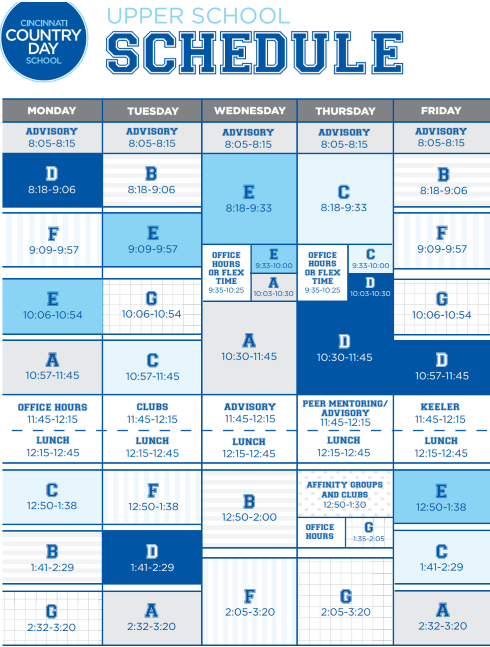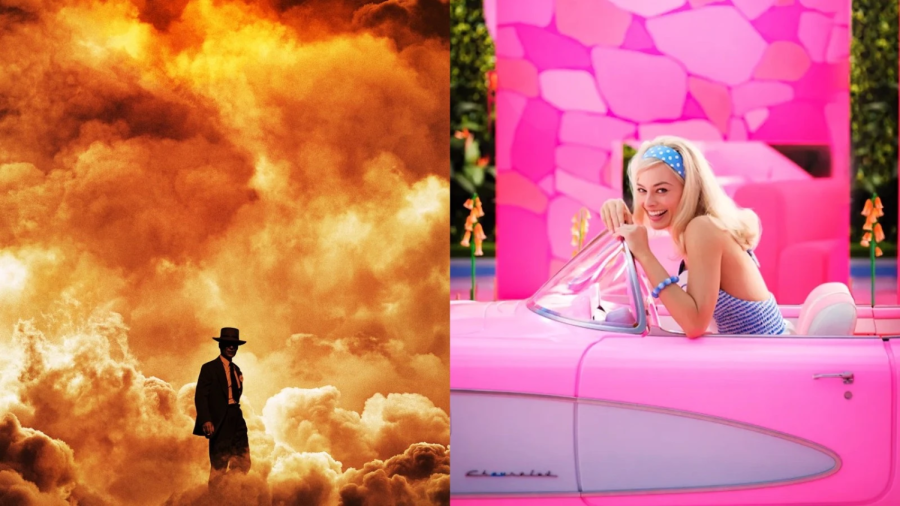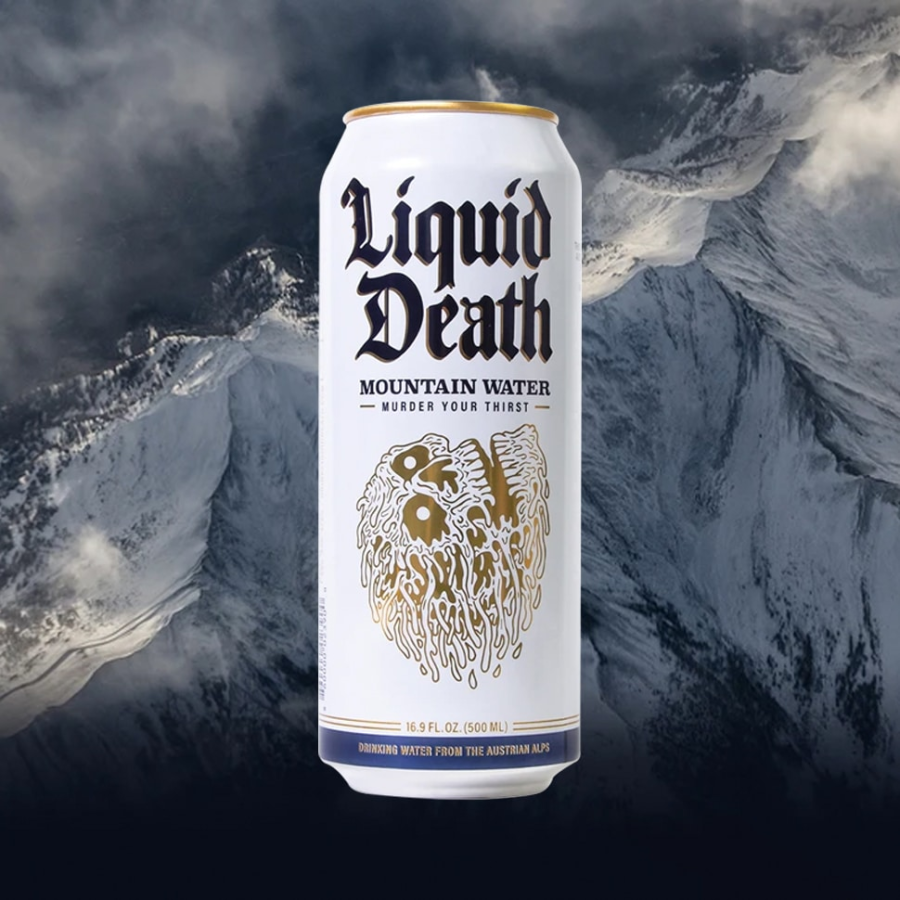In Ms. Floyd’s AP English Literature class, students were asked to write poetry responses to the inaugural poem, Richard Bianco’s “One Today”. She received many compelling responses; some people loved it, some hated it, and some thought of it as an accurate reflection of the American ethos. Below is the poem itself and examples of each interpretation. With whom do you agree?
“One Today” by Richard Bianco
One sun rose on us today, kindled over our shores,
peeking over the Smokies, greeting the faces
of the Great Lakes, spreading a simple truth
across the Great Plains, then charging across the Rockies.
One light, waking up rooftops, under each one, a story
told by our silent gestures moving behind windows.
My face, your face, millions of faces in morning’s mirrors,
each one yawning to life, crescendoing into our day:
pencil-yellow school buses, the rhythm of traffic lights,
fruit stands: apples, limes, and oranges arrayed like rainbows
begging our praise. Silver trucks heavy with oil or paper—
bricks or milk, teeming over highways alongside us,
on our way to clean tables, read ledgers, or save lives—
to teach geometry, or ring-up groceries as my mother did
for twenty years, so I could write this poem.
All of us as vital as the one light we move through,
the same light on blackboards with lessons for the day:
equations to solve, history to question, or atoms imagined,
the “I have a dream” we keep dreaming,
or the impossible vocabulary of sorrow that won’t explain
the empty desks of twenty children marked absent
today, and forever. Many prayers, but one light
breathing color into stained glass windows,
life into the faces of bronze statues, warmth
onto the steps of our museums and park benches
as mothers watch children slide into the day.
One sky: since the Appalachians and Sierras claimed
The dust of farms and deserts, cities and plains. One ground. Our ground, rooting us to every stalk
of corn, every head of wheat sown by sweat
and hands, hands gleaning coal or planting windmills
in deserts and hilltops that keep us warm, hands
digging trenches, routing pipes and cables, hands
as worn as my father’s cutting sugarcane
so my brother and I could have books and shoes.
mingled by one wind—our breath. Breathe. Hear it
through the day’s gorgeous din of honking cabs,
buses launching down avenues, the symphony
of footsteps, guitars, and screeching subways,
the unexpected song bird on your clothes line.
Hear: squeaky playground swings, trains whistling,
or whispers across café tables, Hear: the doors we open
for each other all day, saying: hello, shalom,
buon giorno, howdy, namaste, or buenos días
in the language my mother taught me—in every language
spoken into one wind carrying our lives
without prejudice, as these words break from my lips.
their majesty, and the Mississippi and Colorado worked
their way to the sea. Thank the work of our hands:
weaving steel into bridges, finishing one more report
for the boss on time, stitching another wound
or uniform, the first brush stroke on a portrait,
or the last floor on the Freedom Tower
jutting into a sky that yields to our resilience.
One sky, toward which we sometimes lift our eyes
tired from work: some days guessing at the weather
of our lives, some days giving thanks for a love
that loves you back, sometimes praising a mother
who knew how to give, or forgiving a father
who couldn’t give what you wanted.
We head home: through the gloss of rain or weight
of snow, or the plum blush of dusk, but always—home,
always under one sky, our sky. And always one moon
like a silent drum tapping on every rooftop
and every window, of one country—all of us—
facing the stars
hope—a new constellation
waiting for us to map it,
waiting for us to name it—together.
Lucy Patterson:
Richard Blanco’s poem was perfect for the occasion at hand: the 2nd inauguration of our first black president in our nation’s history. I really liked the part where he talked about saying hello to people in the morning, but in all of the different languages. Like Whitman, Blanco talks of how people are all equal, except in a more elusive way. Blanco mentions the different aspects of human culture, more particularly our nation’s history. When he says that hope is a new constellation, he is referring to the changing world in which we are all living. I think that he is happy with the changes that are happening, and tells the world, often through his own personal anecdotes
the different cultures that people live with, whether they be Muslim, Mexican, Chinese, or White. In this world we live in it is important to relate back to Whitman and follow his messages. While often arrogant, Whitman’s message was more powerful than a lot of people take. The concept of completely being oneself is so often taken down the wrong road. Many people try to be so original, that in their originality they are just the same as everyone else. Free yourself! That is what Whitman, and Blanco want. Be true to the inside nature of yourself, because it is just as beautiful as everything else in the world. Whether your skin is black, white, or brown, all have a beating heart, all have working mind, and all experience emotions. Emotions come to everything living, and all emotions are beautiful. Fear, happiness, anger, grief, a constant transition throughout a lifetime. Or does it continue to death, do these emotions go on, and live renewed? Is equality finally restored, or will there always be self-entitlement? Will, one day, we be able to go down our street, look to the right and see our gay brother, and look to the left and see our Muslim sister, and greet both with warmth and compassion, just as is intended by the miracle of life? These are the things Blanco and Whitman are pushing towards.
Douglas Tallmadge:
Richard Blanco’s Inaugural poem “One Today” lacks the rhyme and fancy words that are all too often a staple of poetry, yet it succeeds where many fail in exemplifying the desired virtue of the poet’s thoughts. Blanco has written a poem of America, and for America, a fitting contribution to a day designed to celebrate our country and her daily democratic triumph. “One Today” is a poem about American exceptionalism, from the Smokies to the great Lakes, yet the exceptionalism it describes is the shy kind, that hides behind a million faces in mirrors, and a thousand flashing traffic lights. This poem is about the future as much as it is about the past, as much 20 years ago as Today. America, as the poem describes without once needing to use the word, is found just as much in the vaulting Sierras, and rolling Appalachians as in the rusted steel of our bridges, or the oil trucks on our highways. Many prayers, many jobs, many lives, but one goal, one unified hope that we can name together. “One Today” describes the great paradox of Democracy, that a million individuals, each with separate wants and desires, can and are more unified than under the rule of one. Despite all the myriad of differences we work under one sky, unify under one moon, and struggle for one goal.
Luke Stacy:
One Day was poem which soothed Americans with feelings of solidarity, but for only those moments it was spoken. Blanco perfectly compasses the unity, and love which the occasion demanded, but artfully utilizes necessary tension. Richard Blanco has obviously read Leaves of Grass, because One Day is very Whitman-esque. One Day catalogues, and creates a coalescence of emotions tied to images of which all Americans can relate. Blanco does a really swell job of capturing where our generation is now, paying tribute to the past, but keeping very contemporary.
Personally, I didn’t really like the poem a lot. It is false advertising of the Obama, Summers, Volcker, Geithner, regime we are living under in the United States. It bothers me very much that such an amazing percentage of United States citizens are basically asleep at the wheel when it comes to what’s really happening in our Federal Government. It amazes me how many people trust, rely, and learn to obey the opiate drug we call television, and the 6 corporate giants which literally own and control 90% of our media. A constitutional desecrating, bureaucratic, lawless, tyrannical elite control and influence all first world countries through corporations. They mascaraed behind a guise of red, white, and blue, and expect to distract us with the youngest and first gay Latino to recite poetry during an inaugural. I wish I could enjoy this poem, but it gives me chills in a kind of bad way. I also noticed that One Day didn’t mention God once, maybe because he’s gay, or maybe because he’s an atheist, or maybe he’s not trying to offend anyone. He so carefully does not offend anyone, but defends himself behind a template created by Walt Whitman, when America was still America.






